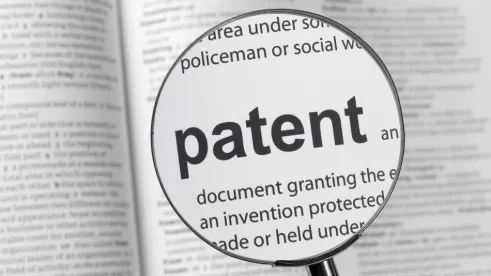Addressing the time limits for filing an interlocutory appeal in patent cases, the US Court of Appeals for the Federal Circuit dismissed such an appeal as untimely, finding that the appellant did not file within 30 days of all liability issues except for a determination of damages being resolved. Mondis Technology Ltd. v. LG Electronics Inc., Case No. 20-1812 (Fed. Cir. Aug. 3, 2021) (Hughes, J.)
Mondis Technology sued LG Electronics for infringement of a patent related to display technology. In a consolidated district court case joining other parties to dispute with LG, a jury found that (1) LG infringed certain claims of the patent owned by Mondis, (2) the patent claims were not invalid and (3) LG’s infringement was willful. The jury awarded $45 million in damages. LG filed multiple post-trial motions relating to infringement, invalidity, willfulness and damages. In September 2019, the district court denied LG’s motions regarding infringement, invalidity and willfulness. Then, in April 2020, the district court granted LG’s motion for a new trial on damages.
Within 30 days of the April 2020 order, LG filed a notice of interlocutory appeal with the Federal Circuit, seeking to challenge the denial of its three post-trial motions.
The Federal Circuit first discussed its jurisdiction to hear interlocutory appeals under 28 U.S.C. § 1292(c)(2), which provides the Court with exclusive jurisdiction over “an appeal from a judgment in a civil action for patent infringement which would otherwise be appealable to the . . . Federal Circuit and is final except for an accounting.” The Court explained that appeals under this section are subject to the time limits of § 2107(a), which in this case would give LG 30 days from the date the judgment became “final except for an accounting.” The Court cited to a previous case in which it held that a judgment is “final except for an accounting” under § 1292(c)(2) when all liability issues have been resolved and only a damages determination remains. The Court further supported its position by citing the Supreme Court of the United States’ 1988 decision in Budinich v. Becton Dickinson in which it found that the merits decision was final after the first post-trial order that resolved all issues except for attorneys’ fees. The Court thus found that all such liability issues were resolved as of the district court’s September 2019 order and that the 30-day clock started at that time.
LG also argued that Rule 4 of the Federal Rules of Appellate Procedure tolled the time to file its appeal. Rule 4(a)(4) provides that “the time to file an appeal runs for all parties from the entry of the order disposing of the last such remaining motion.” The Court disagreed with LG’s characterization, citing a US Court of Appeals for the Third Circuit opinion which found that a motion only tolls the time to file interlocutory appeals if the motion relates to the interlocutory judgment. The Court found that Rule 4(a)(4) did toll the time to file the interlocutory appeal but only until motions concerning liability were resolved, which occurred in September 2019.
Because LG did not file its notice of appeal within 30 days of the September 2019 order, the Court found that LG’s interlocutory appeal was untimely and that the Court did not have jurisdiction over the appeal. The Court did note, however, that LG is not precluded from appealing the liability judgment under § 1295 once the damages determination is completed.



 />i
/>i

